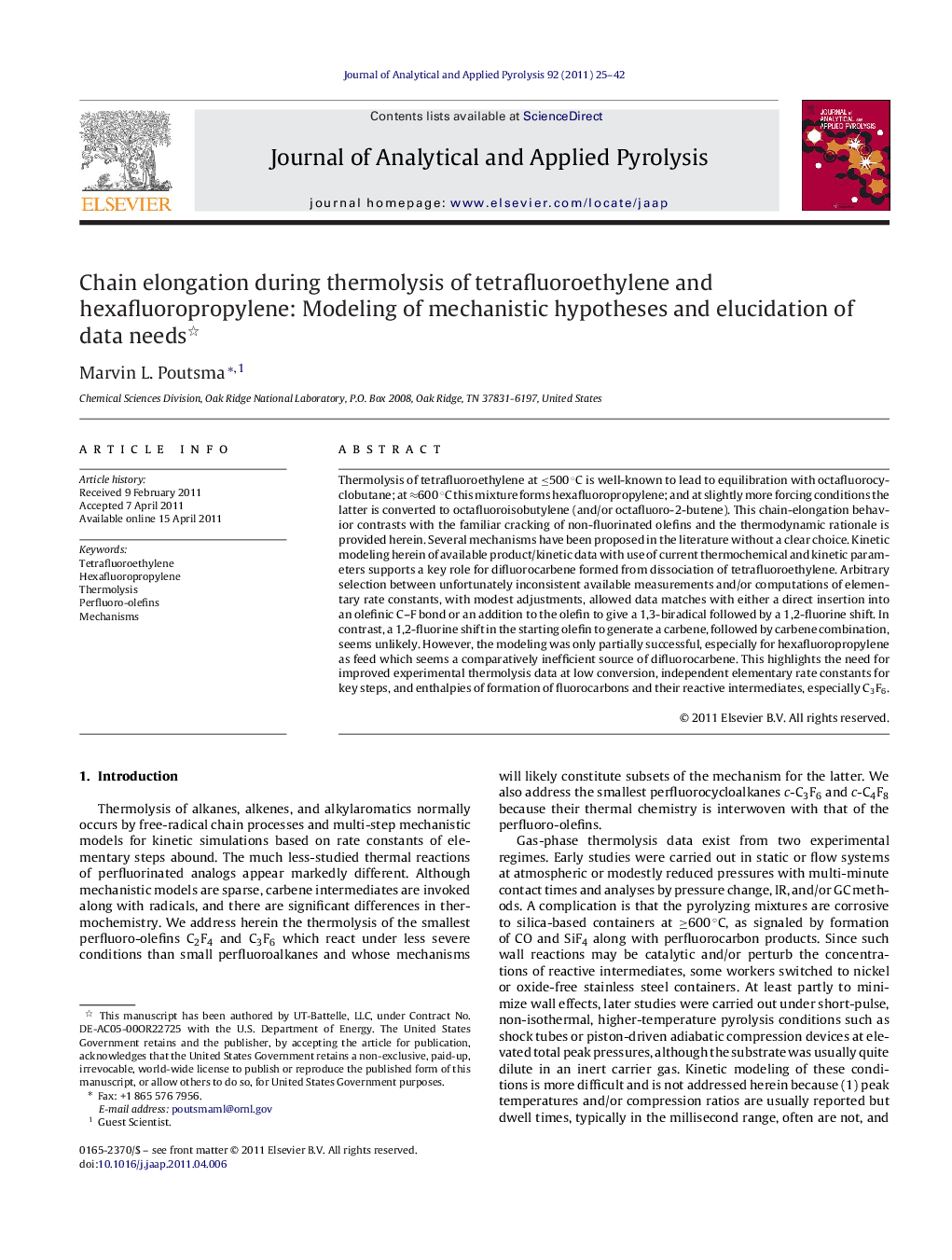| کد مقاله | کد نشریه | سال انتشار | مقاله انگلیسی | نسخه تمام متن |
|---|---|---|---|---|
| 1197854 | 964667 | 2011 | 18 صفحه PDF | دانلود رایگان |

Thermolysis of tetrafluoroethylene at ≤500 °C is well-known to lead to equilibration with octafluorocyclobutane; at ≈600 °C this mixture forms hexafluoropropylene; and at slightly more forcing conditions the latter is converted to octafluoroisobutylene (and/or octafluoro-2-butene). This chain-elongation behavior contrasts with the familiar cracking of non-fluorinated olefins and the thermodynamic rationale is provided herein. Several mechanisms have been proposed in the literature without a clear choice. Kinetic modeling herein of available product/kinetic data with use of current thermochemical and kinetic parameters supports a key role for difluorocarbene formed from dissociation of tetrafluoroethylene. Arbitrary selection between unfortunately inconsistent available measurements and/or computations of elementary rate constants, with modest adjustments, allowed data matches with either a direct insertion into an olefinic C–F bond or an addition to the olefin to give a 1,3-biradical followed by a 1,2-fluorine shift. In contrast, a 1,2-fluorine shift in the starting olefin to generate a carbene, followed by carbene combination, seems unlikely. However, the modeling was only partially successful, especially for hexafluoropropylene as feed which seems a comparatively inefficient source of difluorocarbene. This highlights the need for improved experimental thermolysis data at low conversion, independent elementary rate constants for key steps, and enthalpies of formation of fluorocarbons and their reactive intermediates, especially C3F6.
Perfluoro-olefins are well-known to undergo chain elongation at ≈600 °C, in sharp contrast to the cracking of olefins. Various mechanistic hypotheses are examined in an attempt to construct a kinetic model. However, success is only partial because of gaps in the thermochemical and kinetic data base for perfluoro species.C2F4⟶??ΔC3F6⟶??Δi−C4F8
Journal: Journal of Analytical and Applied Pyrolysis - Volume 92, Issue 1, September 2011, Pages 25–42